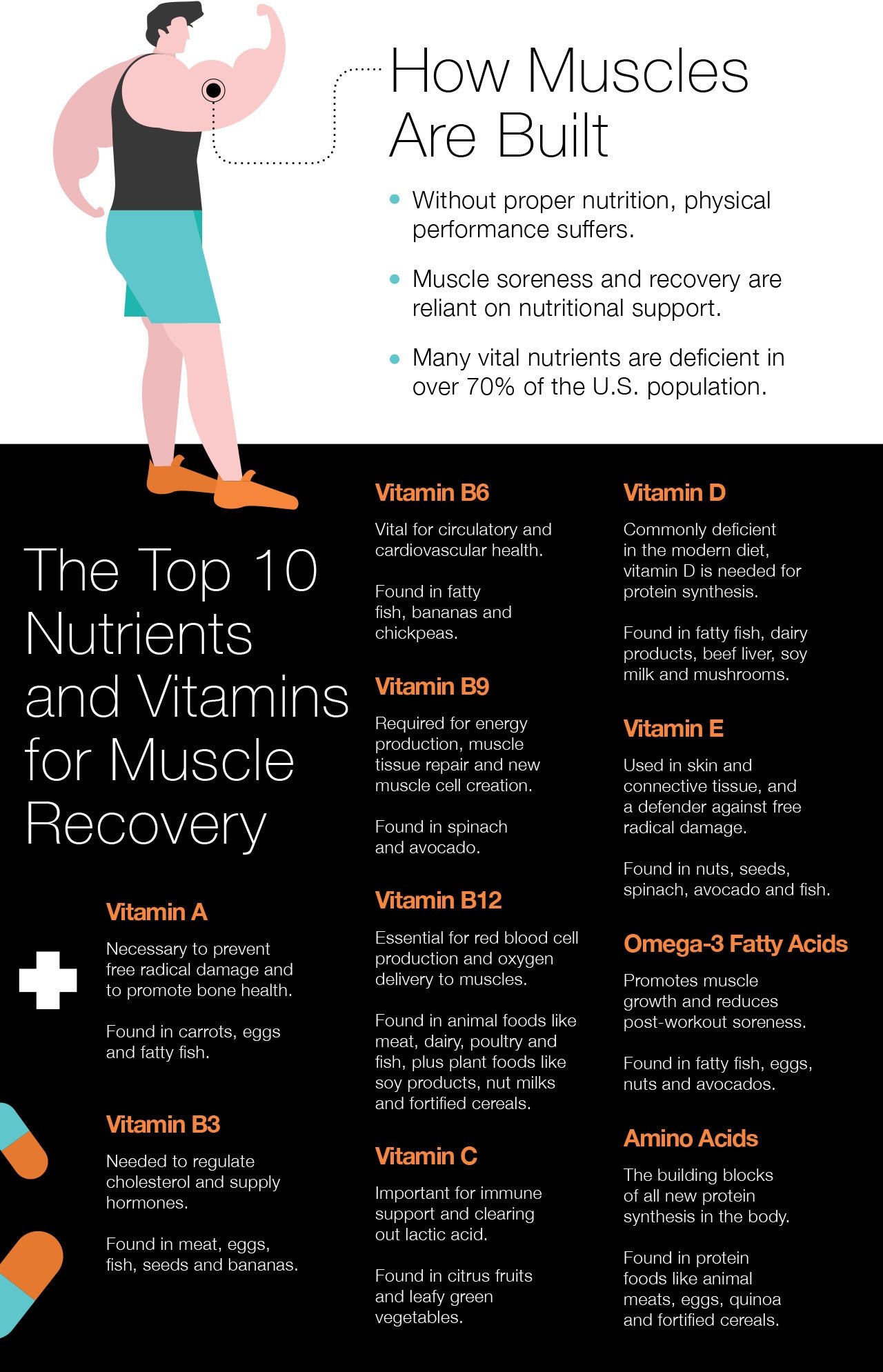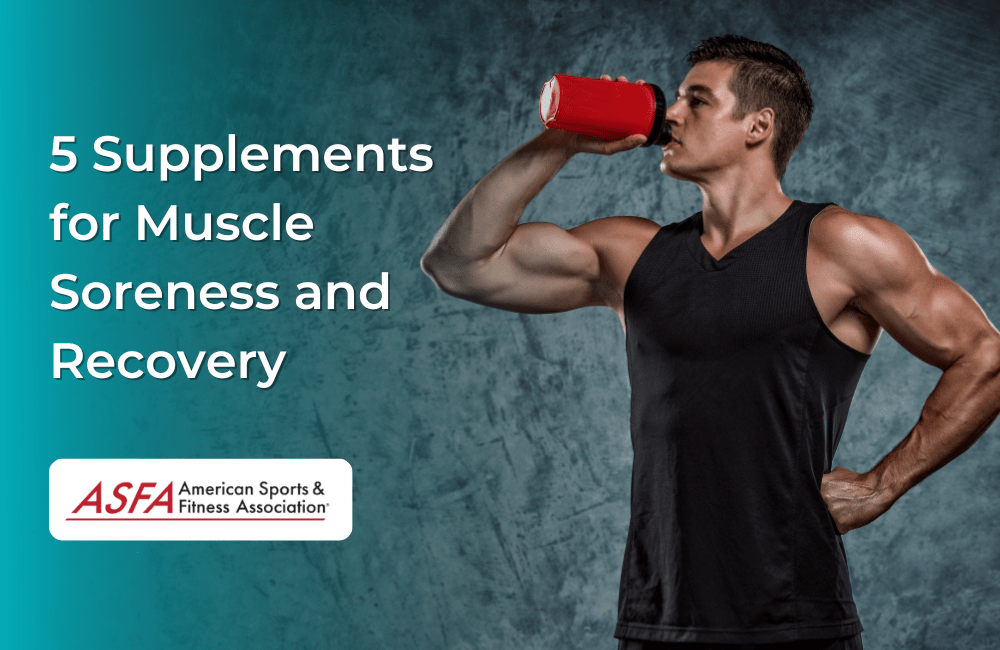If you’re someone who loves staying active and pushing your body to its limits, you’ve probably experienced those post-workout aches and pains that can make even the simplest movements feel like a challenge. But what if there was a way to speed up your recovery and alleviate muscle soreness? That’s where supplements come in. Whether it’s a protein shake to help repair and build muscle or a branch chain amino acid (BCAA) supplement to reduce muscle damage, there may be a variety of options to aid in exercise recovery and relieve muscle soreness. In this article, we’ll explore the potential benefits of supplements and whether they can truly make a difference in your fitness journey.
Overview of Exercise Recovery and Muscle Soreness
What is exercise recovery?
Exercise recovery refers to the process by which the body repairs and adapts to the physical stress caused by exercise. After a workout, your body needs time to recover in order to rebuild and strengthen the muscles that were used. It involves various physiological processes, such as replenishing energy stores, repairing muscle damage, and reducing inflammation.
What causes muscle soreness?
Muscle soreness, also known as delayed onset muscle soreness (DOMS), is a common result of intense or unfamiliar exercise. It is caused by microscopic damage to the muscle fibers, which triggers an inflammatory response in the body. This inflammation leads to pain, stiffness, and swelling in the affected muscles.
The importance of exercise recovery and muscle soreness relief
Exercise recovery is crucial for optimizing performance, preventing injury, and achieving long-term fitness goals. Without adequate recovery, the body may become fatigued, leading to decreased performance, increased risk of injury, and overall reduced fitness gains. Muscle soreness relief is also important for enhancing comfort and minimizing discomfort, allowing individuals to maintain regular exercise routines. Therefore, understanding recovery strategies and finding methods to relieve muscle soreness can greatly benefit individuals in their fitness journey.
Nutrients and Their Role in Exercise Recovery
Proteins
Proteins are the building blocks of muscles and play a significant role in exercise recovery. They are essential for repairing and rebuilding muscle tissues that have been damaged during exercise. Consuming an adequate amount of high-quality protein after workouts can promote muscle protein synthesis and aid in muscle recovery. Good sources of protein include lean meats, poultry, fish, dairy products, beans, and legumes.
Carbohydrates
Carbohydrates serve as the primary source of energy for the body during exercise. They are crucial for replenishing muscle glycogen stores, which can become depleted after intense physical activity. Consuming carbohydrates after exercise helps restore energy levels and supports optimal recovery. Good sources of carbohydrates include whole grains, fruits, vegetables, and legumes.
Healthy Fats
While fats have often been associated with unhealthy food choices, they are an important nutrient for exercise recovery. Healthy fats, such as those found in avocados, nuts, seeds, and fatty fish, provide essential fatty acids that support the body’s recovery process. They also help reduce inflammation and promote joint health.
Vitamins and Minerals
Vitamins and minerals play a crucial role in exercise recovery by supporting various physiological processes. For example, vitamin C is essential for collagen synthesis, which aids in tissue repair, while magnesium is involved in muscle relaxation and energy production. A balanced diet rich in fruits, vegetables, whole grains, and lean proteins can provide the necessary vitamins and minerals for optimal recovery.
Hydration
Proper hydration is vital for exercise recovery. During workouts, the body loses fluids through sweat, and dehydration can impair performance and hinder recovery. Adequate hydration helps maintain blood volume, regulates body temperature, and supports nutrient delivery to the muscles. It is important to drink water before, during, and after exercise, especially in hot and humid environments.

Common Types of Supplements for Exercise Recovery
Protein Supplements
Protein supplements, such as whey protein powders, are commonly used by athletes and fitness enthusiasts to support muscle recovery and growth. These supplements provide a convenient and fast-digesting source of high-quality protein. Consuming protein supplements immediately or shortly after exercise can enhance muscle protein synthesis, promote recovery, and aid in muscle building.
Branched-chain Amino Acids (BCAAs)
BCAAs are a group of essential amino acids, including leucine, isoleucine, and valine. They are known for their ability to stimulate muscle protein synthesis and reduce muscle breakdown. BCAA supplements are often taken before or during workouts to promote muscle recovery and reduce exercise-induced fatigue.
Creatine
Creatine is a naturally occurring compound found in the body and can also be obtained through diet or supplementation. It is involved in the production of adenosine triphosphate (ATP), the primary source of energy for muscle contractions. Creatine supplementation can increase muscle phosphocreatine stores, leading to improved exercise performance and enhanced recovery.
Glutamine
Glutamine is a conditionally essential amino acid that plays a crucial role in muscle recovery. It supports immune function, reduces muscle damage, and promotes glycogen resynthesis. Glutamine supplements are commonly used to aid in post-exercise recovery and minimize muscle soreness.
Beta-Alanine
Beta-alanine is an amino acid that helps increase muscle carnosine levels. Carnosine acts as an intracellular pH buffer, reducing the accumulation of lactic acid and delaying muscle fatigue. Beta-alanine supplementation can improve exercise performance, enhance recovery, and reduce muscle soreness.
Fish Oil
Fish oil is rich in omega-3 fatty acids, specifically eicosapentaenoic acid (EPA) and docosahexaenoic acid (DHA). These fatty acids have anti-inflammatory properties and can help reduce exercise-induced inflammation and muscle soreness. Fish oil supplementation may also benefit cardiovascular health and joint function.
Magnesium
Magnesium is an essential mineral that plays a vital role in muscle relaxation, energy production, and protein synthesis. It is involved in over 300 biochemical reactions in the body, including those related to exercise recovery. Magnesium supplementation can help reduce muscle cramps, improve sleep quality, and support overall recovery.
Vitamin D
Vitamin D is not only important for bone health but also plays a role in muscle function and recovery. Maintaining adequate vitamin D levels may enhance muscle strength, reduce the risk of injury, and optimize exercise recovery. While sunlight is a natural source of vitamin D, supplementation may be necessary, especially for individuals with limited sun exposure.
Turmeric
Turmeric contains a compound called curcumin, which has powerful anti-inflammatory and antioxidant properties. Curcumin supplementation may help reduce exercise-induced inflammation, promote muscle recovery, and alleviate muscle soreness.
Tart Cherry
Tart cherry juice and supplements have gained attention for their potential benefits in exercise recovery. Tart cherries are rich in antioxidants and anti-inflammatory compounds, which may help reduce muscle damage, oxidative stress, and inflammation post-exercise. Consuming tart cherry products before or after exercise may aid in recovery and soreness relief.
Efficacy of Supplements in Exercise Recovery
Scientific evidence supporting the use of supplements
There is a growing body of research indicating the efficacy of certain supplements in exercise recovery. Many studies have demonstrated the positive effects of protein supplementation, BCAAs, creatine, glutamine, and other supplements on muscle recovery, strength gains, and performance improvements. These supplements have been shown to enhance muscle protein synthesis, reduce muscle damage, promote glycogen resynthesis, and alleviate muscle soreness.
The influence of individual factors on supplement effectiveness
It is important to note that the effectiveness of supplements may vary among individuals and depends on several factors. Factors such as age, sex, fitness level, diet, genetics, and training intensity can influence the body’s response to supplementation. Additionally, the timing, dosage, and duration of supplementation may also impact its effectiveness. It is essential to consider individual factors and personalize supplement regimens accordingly.
Potential risks and side effects of supplements
While many supplements are generally safe and well-tolerated, there are potential risks and side effects associated with their use. Some individuals may experience digestive issues, allergic reactions, or interactions with medications. It is crucial to use supplements responsibly, follow recommended dosages, and consult with a healthcare professional before starting any new supplementation regimen.

Combining Supplements for Optimal Exercise Recovery
Understanding the synergistic effects of supplements
Certain supplements may have synergistic effects when combined, enhancing their overall benefits for exercise recovery. For example, combining protein and carbohydrate supplements immediately after exercise can maximize muscle protein synthesis, replenish glycogen stores, and promote recovery. BCAA supplements can also be combined with other recovery supplements to further support muscle repair and reduce fatigue.
Developing a personalized supplement regimen
Given the individual variability in supplement effectiveness, it is important to develop a personalized supplement regimen based on individual needs and goals. Consulting with a registered dietitian, sports nutritionist, or healthcare professional can help assess specific nutrient requirements, identify potential deficiencies, and create a tailored supplement plan that complements an individual’s exercise routine.
Consulting with a healthcare professional
Before starting any new supplement regimen, it is advisable to consult with a healthcare professional, especially if you have any pre-existing medical conditions or take other medications. They can provide guidance, assess potential risks, and offer professional advice tailored to individual circumstances.
Other Strategies for Exercise Recovery and Muscle Soreness Relief
Proper nutrition and hydration
In addition to supplements, proper nutrition and hydration are fundamental for exercise recovery and muscle soreness relief. Consuming a balanced diet that includes an adequate amount of essential nutrients, as discussed earlier, supports overall recovery. Hydrating properly before, during, and after exercise helps maintain performance and optimizes recovery.
Adequate rest and sleep
Rest and sleep are essential components of exercise recovery. Giving your body enough time to rest and repair is crucial for muscle recovery and overall performance. Aim for 7-9 hours of quality sleep each night and incorporate rest days or lighter training days into your exercise routine.
Stretching and foam rolling
Incorporating stretching exercises and foam rolling into your post-workout routine can help alleviate muscle soreness and improve flexibility. Stretching helps lengthen muscle fibers and reduces muscle tension, promoting blood circulation and recovery. Foam rolling can help release muscle tightness and trigger points, providing relief from muscle soreness and increasing range of motion.
Cold and hot therapy
The use of cold and hot therapy can provide immediate relief and promote recovery. Applying ice or cold packs to sore muscles helps reduce inflammation and numbs pain, while heat therapy, such as hot baths or heat packs, helps relax muscles and improve blood flow, facilitating recovery.
Massage and acupuncture
Massage therapy and acupuncture have been used for centuries to promote healing and relieve muscle soreness. Massage helps increase blood flow, reduce muscle tension, and decrease inflammation. Acupuncture, on the other hand, stimulates specific points in the body, promoting the release of endorphins and aiding in pain relief.

Importance of a Balanced Lifestyle and Healthy Exercise Habits
The role of consistent exercise in overall health
While supplements and other recovery strategies are beneficial, they should never replace the importance of consistent exercise for overall health. Engaging in regular physical activity provides numerous health benefits, including improved cardiovascular fitness, increased muscle strength, enhanced mental well-being, and reduced risk of chronic diseases.
Maintaining a well-rounded diet
Supplements should be considered as an addition to a well-rounded and balanced diet, rather than a substitute. Whole foods provide a wide range of nutrients, antioxidants, and bioactive compounds that are not present in isolated supplements. Emphasize the consumption of fruits, vegetables, whole grains, lean proteins, and healthy fats to ensure optimal nutrient intake.
Avoiding excessive use of supplements
While supplements can be helpful, it is important to avoid excessive use or reliance on them. It is generally recommended to obtain nutrients from whole foods whenever possible, as they offer a wide range of health benefits beyond specific nutrients found in supplements. Remember that supplements are intended to supplement a healthy diet and lifestyle, not replace them.
Seeking professional guidance
To optimize exercise recovery and ensure long-term success, it is beneficial to seek guidance from qualified professionals, such as registered dietitians, sports nutritionists, personal trainers, or healthcare providers. They can provide personalized advice, address individual needs, and help create a well-rounded approach to exercise recovery.
Personal Experiences and Testimonials
Individual stories of supplement use and exercise recovery
Personal experiences and testimonials can provide insights into how individuals have incorporated supplements into their exercise recovery routines and their outcomes. While personal accounts can offer valuable anecdotal evidence, it is important to recognize that individual responses may vary based on factors such as genetics, training history, and overall lifestyle.
Possible biases and limitations of testimonials
It is essential to approach personal experiences and testimonials with caution, as they may be influenced by individual biases, expectations, or other subjective factors. Personal stories can provide valuable insights but should not be solely relied upon as evidence. Scientific research and peer-reviewed studies offer a more reliable and objective basis for evaluating the efficacy of supplements.

Future Directions and Research
Areas for further scientific investigation
The field of exercise recovery and supplementation is continuously evolving, and there are several areas that warrant further scientific investigation. Future research could focus on the optimal timing, dosage, and combination of supplements for specific exercise modalities or populations. Additionally, more studies are needed to explore the long-term effects, safety profiles, and potential interactions of various supplements.
Emerging trends in exercise recovery and supplementation
As research progresses, new trends and innovations in exercise recovery and supplementation may emerge. Technological advancements, such as wearable devices and biometric tracking, can provide valuable data on individual responses to supplements and recovery strategies. Additionally, the exploration of novel compounds, plant-based alternatives, and personalized nutrition approaches may shape the future of exercise recovery.
Conclusion
Understanding the potential benefits and limitations of supplements is crucial for optimizing exercise recovery and relieving muscle soreness. While supplements can support muscle repair, reduce inflammation, and promote recovery, they should be used as part of a comprehensive approach that includes proper nutrition, hydration, rest, and other recovery strategies. It is important to tailor supplement regimens to individual needs, seek professional guidance, and prioritize a well-rounded and balanced lifestyle for optimal exercise recovery.

